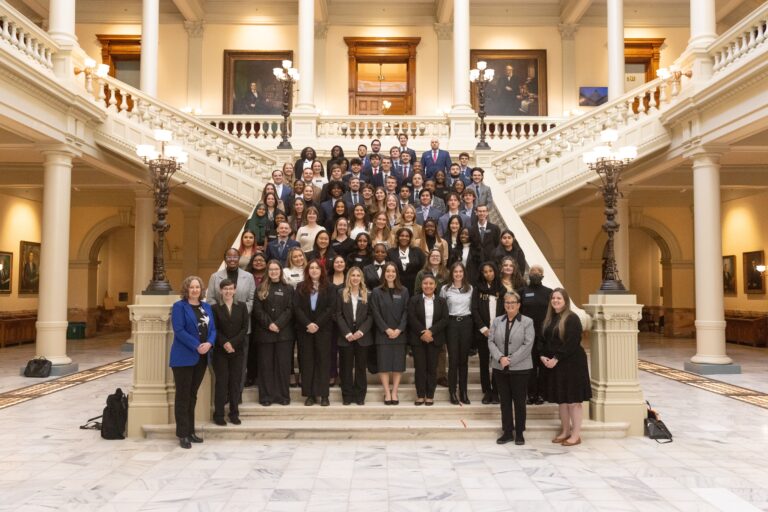Scholarships for first generation students in georgia
Earning a college degree is a dream for many—but for first generation college students in Georgia, this dream can come with unique challenges. From navigating financial hurdles to understanding how to even begin the application process, the path to higher education can feel overwhelming. That’s where scholarships come in.
Scholarships designed for first generation students not only ease financial burdens but also open the doors to an education that can transform lives. This article will walk you through everything you need to know about Scholarships for first generation students in Georgia, the opportunities available for them, how to apply for them, and how they can make a difference in your college experience.
What Are First-Generation Scholarships?

Definition and Criteria for First-Generation Students
Before we explore specific scholarships, it’s essential to understand who qualifies as a first-generation student. Generally, first generation students are individuals whose parents did not complete a four-year college degree. This definition can sometimes vary slightly based on the scholarship program, so always check specific eligibility criteria.
First generation scholarships recognize these students’ unique challenges, from lacking guidance in navigating college systems to financial constraints. They aim to reduce barriers, helping these students achieve their academic goals.
Unique Opportunities Offered by These Scholarships
Unlike general scholarship programs, first generation scholarships often provide more than just financial aid. Many include mentorship programs, workshops, and networking opportunities to help students succeed academically and professionally.
These scholarships don’t just invest in your education—they invest in your potential.
8 Prominent Scholarships for First Generation Students in Georgia
1, HOPE Scholarship
The HOPE Scholarship is available to Georgia residents who demonstrate academic excellence. While it’s not exclusive to first generation students, it provides significant financial support for eligible students attending Georgia colleges.
Requirements:
- Minimum 3.0 GPA in high school
- Enrollment in a Georgia college or university
2. The Georgia HERO Scholarship
The Georgia HERO (Helping Educate Reservists and their Offspring) Scholarship is designed to provide financial assistance to members of the Georgia National Guard or U.S. Military Reserves, as well as their spouses and children. This scholarship aims to support those who have served our country or whose family members have made significant sacrifices in the line of duty. Eligible students can receive up to $2,000 per academic year for educational costs, with a maximum of $8,000 total over the course of their undergraduate studies.
Requirements:
- Be a current member of the Georgia National Guard or U.S. Military Reserves who served in a combat zone, or be the spouse or child of such a member
- Enrollment in an eligible Georgia college or university
- Submit a completed Georgia HERO Scholarship application and required documentation
For more information about eligibility and application deadlines, visit the official Georgia Student Finance Commission (GSFC) website at (https://www.gafutures.org).
Detailed guidelines and additional resources are available on the website to assist students in navigating the application process
3. Coca-Cola First Generation Scholarship
This scholarship aims to support students who are the first in their family to attend college, encouraging academic success and community involvement. It is awarded to students who demonstrate strong leadership capabilities, active participation in community service, and financial need. The Coca-Cola First Generation Scholarship is often available through partnerships with specific colleges and universities, so students must research participating institutions for application details.
For more information about eligibility, application procedures, and deadlines, visit the Coca-Cola Scholars Foundation website.
Specifically aimed at supporting first-generation college students, this scholarship provides financial assistance to exceptional students attending certain universities, such as Georgia Tech or the University of Georgia.
Requirements:
- Must be a first-generation college student
- Demonstration of financial need and academic excellence
4. The Posse Foundation Scholarship
The Posse Foundation Scholarship is a unique program designed to support diverse groups of students with extraordinary leadership potential. This scholarship goes beyond just financial support, offering recipients the chance to be part of a Posse, a tightly-knit group that serves as a support network throughout their college experience. Partnering with various prestigious colleges and universities, the Posse Foundation is committed to fostering success and helping students excel academically, professionally, and personally.
Requirements:
- Must demonstrate leadership abilities in school, community, or family
- Strong academic performance and motivation
- Nomination by a community leader, counselor, or educator
To learn more and begin the nomination process, visit the official Posse Foundation website at https://www.possefoundation.org.
5. Zell Miller Scholarship
The Zell Miller Scholarship is a merit-based scholarship program available to students in Georgia who demonstrate academic excellence. This scholarship covers the full cost of tuition at eligible public colleges and universities in Georgia, as well as a portion of tuition at private institutions within the state. Students must meet residency requirements and maintain a high GPA to qualify.
Requirements:
- Graduated from an eligible high school with a minimum 3.7 GPA
- Earned at least a 1200 SAT score (Math and Evidence-Based Reading and Writing) or a 26 ACT composite score
- Maintain a college GPA of 3.3 or higher to renew the scholarship
For more details and application guidelines, visit the official Georgia Futures website at www.gafutures.org.
Private and Institutional Scholarships

Scholarships Offered by Georgia-Based Universities
Many universities in Georgia offer scholarships to students who meet specific eligibility criteria. Below are some examples of Georgia-based universities and the scholarships they provide:
6. University of Georgia (UGA):
UGA offers a variety of scholarships for incoming freshmen, including the Foundation Fellowship and Bernard Ramsey Honors Scholarships, which are highly prestigious merit-based awards. To learn more, visit UGA Scholarships and Financial Aid.
7. Georgia State University (GSU):
GSU provides several scholarship opportunities through its Scholarship Resource Center. These include the Presidential Scholarship and the Goizueta Foundation Scholarship for Hispanic/Latinx students. More details can be found at GSU Scholarship Portal.
8. Georgia Institute of Technology (Georgia Tech):
Georgia Tech has scholarships like the President’s Scholarship Program, which rewards academic excellence and leadership potential. Explore the options at Georgia Tech Scholarships.
9. Kennesaw State University (KSU):
KSU offers scholarships ranging from merit-based awards to need-based and departmental scholarships. For more information, visit KSU Office of Scholarships.
You can find detailed information about eligibility, deadlines, and how to apply by visiting these websites. Take the time to research thoroughly to increase your chances of finding scholarships that align with your qualifications and goals.
Many Georgia universities, like the University of Georgia and Georgia State University, offer first-generation scholarships tailored to local students. For example, Georgia Tech provides the G. Wayne Clough Georgia Tech Promise Program, which helps low-income and first-generation students graduate debt-free.
ALSO READ:
Application Tips and Advice
Applying for scholarships can feel overwhelming, but with careful planning and focus, you can increase your chances of success. Start by thoroughly reviewing the eligibility requirements for each scholarship to ensure you meet the necessary criteria. Gather all supporting documents, such as transcripts, test scores, and recommendation letters, well in advance to avoid last-minute stress.
When writing your personal statement or essay, take the opportunity to share your unique story. Highlight your leadership experiences, community involvement, and academic goals to demonstrate why you are a strong candidate. Be honest and authentic in your responses—it’s your chance to make a personal impression beyond your grades.
Finally, don’t hesitate to seek help from mentors, counselors, or teachers. They can provide valuable feedback on your application materials and ensure your submission is polished and complete. By staying organized and taking these steps, you’ll be setting yourself up for success in earning the scholarships you’re applying for.
Eligibility Criteria
To qualify for many scholarships, specific eligibility criteria must be met, varying depending on the funding source and purpose. Generally, scholarships often require applicants to demonstrate academic merit, financial need, or unique personal circumstances.
- Academic Merit – Most scholarships mandate a minimum GPA or standardized test score to ensure students maintain high levels of academic achievement. For example, merit-based scholarships often prioritize students excelling in their coursework or showcasing exceptional talent in fields like science, arts, or athletics.
- Financial Need – Need-based scholarships evaluate a student’s financial situation, often requiring documentation such as FAFSA (Free Application for Federal Student Aid) forms. These programs aim to ensure equitable access to education by prioritizing students from low-income households.
- Residency and Demographics – Some scholarships are restricted by geographic location, such as state or community-based programs, or demographic groups, like first-generation students, underrepresented minorities, or veterans.
- Field of Study or Career Goals – Specialized scholarships are available for students pursuing specific fields, such as STEM, education, or healthcare, aligning with the funding organization’s mission to address workforce gaps or promote innovation.
- Extracurricular Activities and Leadership – Scholarships often reward students actively involved in community service, leadership roles, or extracurricular activities, as these qualities underscore well-roundedness and a commitment to making a positive impact.
Meeting eligibility criteria typically requires submitting detailed applications, transcripts, recommendation letters, and sometimes essays or personal statements. Students are encouraged to carefully review requirements for each opportunity and prepare their materials thoroughly to increase their chances of success.
How to Apply for Scholarships in Georgia

Step-by-Step Application Process
- Research Scholarships
Start by exploring scholarships you qualify for based on eligibility requirements.
- Gather Required Documents
Prepare transcripts, financial documents, essays, and recommendation letters.
- Complete Applications
Follow submission guidelines closely. Late or incomplete applications are typically disqualified.
- Apply for FAFSA
Many scholarships require a completed FAFSA to assess financial need.
- Submit Early
Beat deadlines to ensure your application is considered.
Tips for Writing a Winning Scholarship Essay
- Tell Your Story
Describe your unique challenges and aspirations as a first-generation student.
- Stay Focused
Align your essay with the scholarship’s mission and objectives.
- Proofread Carefully
Typos and grammatical errors can make a bad impression.
Scholarship Deadlines and Timelines
Key Dates for Major Scholarships
Here are some general timelines to keep in mind:
- HOPE Scholarship applications align with your college admissions timeline.
- REACH Scholarship deadlines are often set by participating schools and districts—check with your school counselor.
- Private scholarships may have varying deadlines, so create a spreadsheet to stay organized.
Plan ahead, as deadlines can sneak up quickly!
The Impact of Scholarships on First-Generation Students
Reducing Financial Burden
For first-generation students, scholarships can mean the difference between attending college or postponing higher education altogether. By covering part—or all—of tuition, scholarships lighten the financial load, allowing students to focus on academics.
Encouraging Higher Education Enrollment
Offering financial relief and additional support, scholarships inspire first-generation students to take that critical first step toward a college education.
Inspiring Stories of Success
Inspiring First-Generation Students
Take Sara Johnson, a REACH Scholarship recipient who became the first in her family to graduate from college. With the program’s mentorship and financial aid, she earned a degree in education, giving back to her community as a teacher.
These stories prove that scholarships don’t just change lives—they create ripple effects that transform communities.
Overcoming Challenges During the Application Process
Addressing Common Hurdles
- Lacking Confidence: Reach out to mentors or counselors for support.
- Managing Deadlines: Use calendar apps to track key dates.
Tips for Staying Organized
- Keep all documents in a labeled folder.
- Set reminders for when applications open and close.
Additional Resources for First Generation Students in Georgia
In addition to scholarships, there are many other resources available to support first-generation students in Georgia. These include:
- The Georgia College Advising Corps, which provides free college access and financial aid advising to high school students across the state
- Programs such as TRIO and Gaining Early Awareness and Readiness for Undergraduate Programs (GEAR UP), which offer academic and personal support for low-income and first-generation students
- The Center for Academic Success at your chosen college or university, which may offer academic tutoring, mentoring, and other resources.
Don’t be afraid to reach out to these resources for guidance throughout your college journey. Remember that
- Nonprofit Organizations
Groups like Communities in Schools of Georgia provide tutoring, mentoring, and other resources for first-generation students.
- Mentorship Programs
Programs like Big Brothers Big Sisters offer one-on-one support from experienced mentors.
FAQs
Who qualifies as a first-generation student in Georgia?
Typically, students whose parents did not complete a four-year degree are considered first-generation.
Can out-of-state students apply for these scholarships?
Most scholarships for first-generation students in Georgia are limited to state residents.
Are there scholarships for part-time first-generation students?
Some programs support part-time students, but full-time enrollment is often required for larger scholarships.
Conclusion

Being a first-generation student is no easy feat, but scholarships make the path to higher education more accessible. If you’re eligible, don’t hesitate—start exploring scholarship programs today. The investment in your future will be worth it.
Need more guidance? Visit [scholarship portal or website] to find detailed resources and application links. Your college dreams are within reach!







